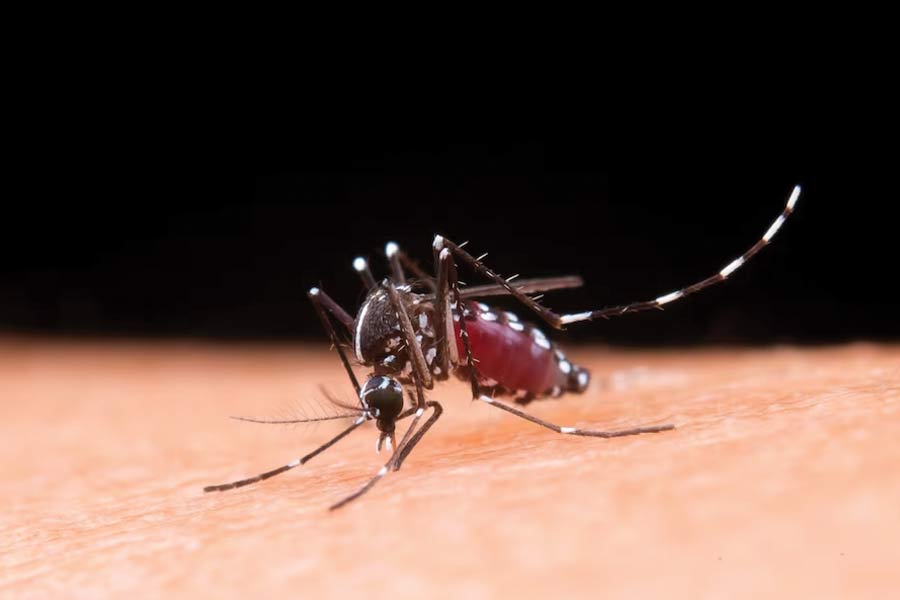Name: Aedes aegypti
Size: 4-7 millimetres
Weight of an adult: 2 milligrams (weight of a Rs 50 note is 1 milligram)
Victims this year worldwide*: Over 3.7 million; more than 2,000 deaths across 70 countries/territories until August
Victims this year in India*: 31,464 and 36 deaths until July
Why can’t we crush them?
They are older, wiser
Mosquitoes in general are much older inhabitants of this planet than humans. Study of fossils confirms that they existed even 100 million years ago, whereas the earliest humans existed at least 5 million years ago. But naturally, the survival techniques of mosquitoes are better. They have adapted through era upon era of adverse environmental and climatic conditions. There are different types of mosquitoes (over 3,000) and depending on the type of biotope — forest, city, village — different subtypes have evolved. The dengue mosquito is mostly to be found in urban settlements, close to human habitats.
Water
Mosquitoes lay their eggs in water. “For as long as there is water on Earth there will be mosquitoes on Earth. We need to accept this truth,” says Dr Amitabha Nandy, who is a tropical infectious diseases specialist. According to him, before waging any battle on this teeny-weeny creature, it is necessary to accept this truth. “If you are in denial, you move further away from your target,” he adds.
Impossible targets, unscientific civic approach
Speaking of targets, governments and civic bodies appear to believe they can vanquish the dengue mosquito. This stance is obviously old and borne out by the Bengali adage, “Fire a cannon to kill the mosquito.” Fact is, a logical, scientific and step-by-step approach can only tackle the creature and reduce “mosquito density”. As opposed to? Well, as opposed to sprinkling dry bleaching powder on city roads. Says Dr Nandy, “Bleaching powder can be used to control water-borne bacterial diseases. Once it is in water, it releases chlorine — chlorine is germicidal not larvicidal. Bleaching powder does not kill mosquito larvae. On the contrary, it can be a health hazard.”
Culture of ignorance
Nothing can be done about the natural breeding sites of mosquitoes — stumps of trees, fallen leaves, paddy fields. But man-made or artificial breeding sites can be controlled/restricted/almost eliminated. It is said mosquitoes can breed in as little as one teaspoon of water. Look around. Garbage on the roads, plastic bottles, caps, poor drainage, broken pavements and roads, reckless construction, abandoned cars, next to no urban planning... Now think again, is it not cheaper to be clean than to get dengue? Is it not better to be an informed citizenry demanding logical measures from the state, errant public and private enterprises and cooperating as a community than trying to dodge a fatal bite? And no, chewing papaya leaves to increase platelet count does not work, according to experts. Says Dr Nandy, “There is a condition called immune thrombocytopenia. It has existed for years and those suffering from it have low platelet count. If the papaya leaf theory were true, wouldn’t all the papaya trees of the world have gone bare by now?”
The mosquito started out much before us and it is progressing. Humans started out later and in many geographies are happy to regress. And that is why it will never be an equal battle.











